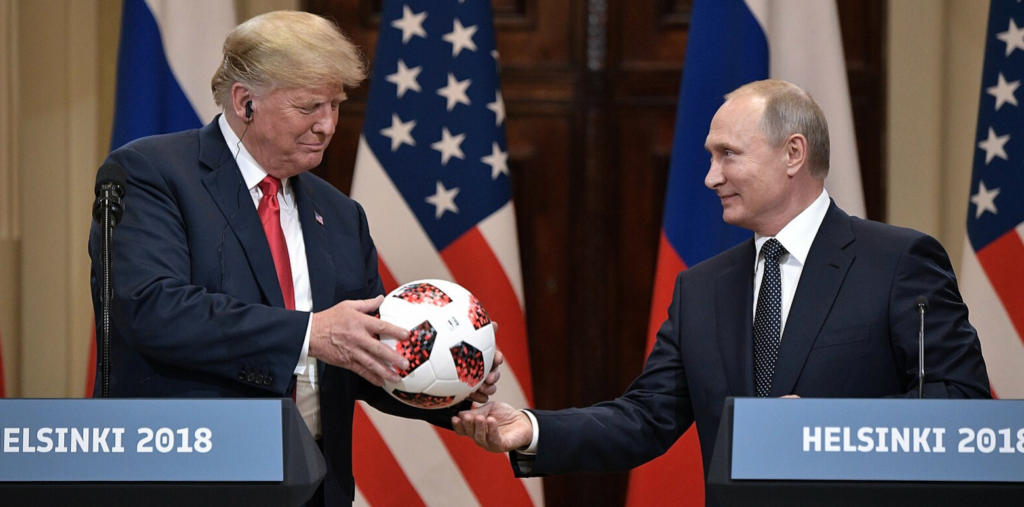Report: Trump Held Private Conversations with Putin Up to 7 Times as a Private Citizen

The relationship between former U.S. President Donald Trump and Russian President Vladimir Putin has been the subject of intrigue, speculation, and concern throughout Trump’s time in and out of office. With revelations of secret exchanges, continued post-presidency conversations, and public displays of admiration, the dynamics between the two leaders seem to paint a picture of influence, secrecy, and a troubling alignment with authoritarianism, according to reporting by The Washington Post and CNN.
Trump and Putin: Secret Connections
One of the most startling revelations was Trump’s decision to secretly send COVID-19 test machines to Vladimir Putin in 2020. This gesture, made at Putin’s request, was accompanied by an unusual level of secrecy. Putin explicitly asked Trump, “Please don’t tell anybody you sent these to me,” reflecting the sensitive nature of this exchange. Trump’s response—”I don’t care. Fine”—demonstrates a willingness to accommodate Putin without regard for potential political backlash.
The secrecy surrounding their relationship didn’t stop there. Since leaving office in 2021, Trump has reportedly maintained private communication with Putin on multiple occasions, with as many as seven such phone calls. The details of these conversations remain unknown, and the continued secrecy raises serious questions about their nature and purpose. In early 2024, for example, Trump reportedly asked an aide to leave the room at Mar-a-Lago so he could conduct a private call with Putin—an incident that showcases Trump’s desire for confidential communications.
Putin’s Nuclear Threats and Trump’s Alignment
The Trump-Putin connection gains further complexity when considered against the backdrop of Russia’s increasingly aggressive international posture. In October 2021, U.S. intelligence concluded that Putin planned to invade Ukraine with 175,000 troops. Despite these alarming developments, Trump continued to express admiration for Putin, even calling him a “genius” for his maneuvers in Ukraine in 2024. This praise came as Putin threatened nuclear escalation, illustrating Trump’s disregard for the democratic values that were under threat in Ukraine.
This public display of favoritism towards Putin is part of a larger pattern in Trump’s dealings with Russia. During his presidency, Trump sought to lift sanctions on Russian oligarch Oleg Deripaska, a close ally of Putin. Additionally, Trump undermined NATO by suggesting the United States might not honor its commitments to the alliance—a stance that aligned with Putin’s interest in weakening Western unity.
Undermining American Interests
Trump’s actions during his presidency often aligned with Russian interests, which had the effect of weakening America’s strategic position globally. He consistently downplayed the threat posed by Russia, dismissing U.S. intelligence findings about Russian interference in the 2016 election and describing investigations into Russian meddling as a “witch hunt.” This dismissal of intelligence undermined efforts to hold Russia accountable and further emboldened Putin.
Moreover, Trump’s repeated undermining of NATO, coupled with delays in military aid to Ukraine, directly served Russian objectives. NATO is a crucial counterbalance to Russian aggression, and Trump’s behavior cast doubt on the alliance’s unity and America’s role within it—an outcome that Putin would certainly favor.
A Reckless Leader?
Trump’s relationship with Putin has not gone unnoticed by those who have scrutinized his presidency. In Bob Woodward’s book “War,” Trump is described as “the most reckless and impulsive president in American history.” The secret COVID-19 test shipments, the continued private conversations with Putin, and Trump’s admiration for Putin’s authoritarian actions all add credibility to this assessment. Trump’s actions reflect a preference for authoritarian figures and a disregard for democratic norms, raising concerns about the implications for American national security and democratic values.
The Putin-Trump Dynamic and Its Implications
The continued relationship between Donald Trump and Vladimir Putin—marked by secrecy, favoritism, and alignment with authoritarian interests—raises serious concerns about Trump’s motives and the influence Putin may have over him. Trump’s actions, from undermining NATO to privately communicating with Putin even after leaving office, appear to prioritize his personal admiration for perceived strength over the interests of American democracy.
Putin’s request for secrecy regarding the COVID-19 test machines and Trump’s compliance suggest that the Russian leader held enough sway to make personal demands of the U.S. president. This dynamic, coupled with Trump’s consistent praise for Putin, reflects an alarming alignment with values that are fundamentally at odds with democratic principles. As more details come to light, it becomes crucial to understand the full extent of their relationship and the consequences it may have for American foreign policy and global stability.

